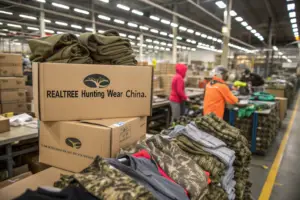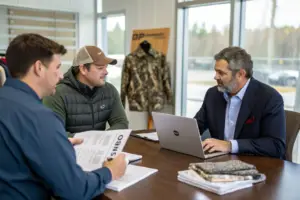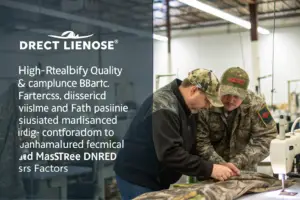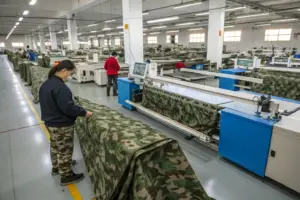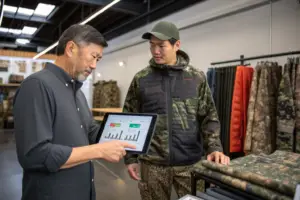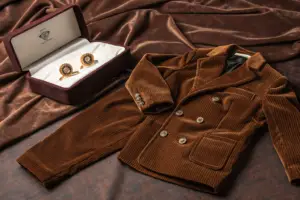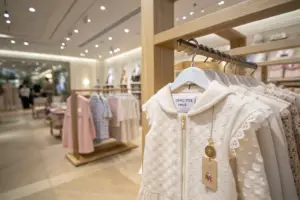
Have great clothing designs but unsure how to bring them to life? Many aspiring brands face this challenge when transitioning from concept to production.
To get your clothing designs manufactured, you need to follow a step-by-step process that includes design finalization, sourcing manufacturers, and managing production.
In this guide, I’ll walk you through the steps to turn your ideas into tangible products.
How do I prepare my clothing designs for manufacturing?

Does your design clearly communicate your vision? Before approaching a manufacturer, preparation is crucial to ensure smooth production.
You need to create detailed technical packages (tech packs) and prototypes to translate your designs into manufacturable garments.
Steps to Prepare
-
Develop Tech Packs
- Include detailed measurements, fabric types, colors, and construction methods.
- Add sketches and design notes to provide clear instructions.
-
Create Prototypes
- Work with a local tailor or small workshop to develop initial samples.
- Test fit, functionality, and overall appeal.
-
Finalize Specifications
- Resolve any design inconsistencies or production challenges discovered during prototyping.
A well-prepared design minimizes misunderstandings and ensures manufacturers can meet your expectations.
How can I find the right manufacturer for my designs?

Where do you look for a manufacturer that matches your vision and budget? Finding the right partner is key to successful production.
Search for manufacturers who specialize in your product type, have experience with similar projects, and align with your values.
Strategies for Finding Manufacturers
-
Research Online Directories
- Platforms like Alibaba, Maker’s Row, and ThomasNet provide a wealth of supplier options.
-
Attend Trade Shows
- Events like MAGIC in Las Vegas and Texworld are great for networking with manufacturers.
-
Request Referrals
- Reach out to industry peers or local design communities for trusted recommendations.
-
Contact Factories Directly
- Many manufacturers list their services online. Initiate conversations to gauge compatibility.
Key Questions to Ask
- What is your minimum order quantity (MOQ)?
- Can you handle customization for unique designs?
- What are your lead times and production capacities?
What does the production process look like?

What happens once you’ve found a manufacturer? Production involves multiple stages, each requiring clear communication and collaboration.
The production process typically includes sample creation, bulk production, quality checks, and shipping.
Steps in the Manufacturing Process
-
Sample Development
- The manufacturer creates a sample based on your tech pack.
- Review and approve the sample before bulk production.
-
Bulk Production
- Once the sample is approved, the manufacturer begins mass production.
- Regular updates ensure the process stays on track.
-
Quality Control
- Inspect the finished goods to confirm they meet your standards.
- Use third-party inspectors if manufacturing overseas.
-
Packaging and Shipping
- Confirm packaging specifications and shipping logistics with your supplier.
- Account for customs duties and lead times if sourcing internationally.
Effective communication throughout these steps minimizes errors and ensures timely delivery.
How do I manage costs and timelines?

Worried about staying within budget and meeting deadlines? Careful planning is essential to keep your project on track.
Cost and timeline management require detailed agreements with your manufacturer and proactive problem-solving.
Tips for Managing Costs
- Negotiate MOQs: Start with smaller quantities to reduce upfront investment.
- Source Economical Materials: Work with your manufacturer to find cost-effective options.
- Plan for Contingencies: Budget extra for unexpected delays or revisions.
Tips for Managing Timelines
- Set Clear Deadlines: Communicate your timeline expectations from the start.
- Monitor Progress: Schedule regular check-ins with your manufacturer.
- Anticipate Delays: Account for possible disruptions in production or shipping.
| Factor | Domestic Manufacturing | Overseas Manufacturing |
|---|---|---|
| Costs | High | Low |
| Timelines | Short | Long |
| Communication | Easy | Can be challenging |
By addressing costs and timelines proactively, you’ll avoid common pitfalls that derail production.
Conclusion
Getting your clothing designs manufactured involves detailed preparation, finding the right partner, and managing production effectively. Follow these steps to turn your creative vision into reality.




